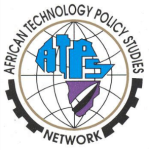Giving Voice to African Women to Discover, Decipher and Develop Advances in Science and Technology
The African Technology Policy Studies network (ATPS) places a huge emphasis on building capacities of African women as drivers of their own destinies and Africa’s development, through dynamic engagement in science, technology and innovation (STI) policy research, policy process and policy practice. It was in pursuance of this objective that the African Women Forum for Science and Technology (AWFST) was initiated in 2007.Building upon this platform, The ATPS is now pleased to announce the launch of a new program, “The Women Innovation Challenge (WE CAN) program.
The WE CAN Program
Click to apply
WE CAN is an Innovation Network for Transformational Change for women in STI. It is centred around an innovative Mentoring Programme, which joins Strategic Women Leaders to at least 5 women each year, working on individual BreakThrough Innovations (BTIs) across Africa. In Africa, science and technology sits within the heart of culture and how African people see themselves. African women have a rich cultural heritage of geometry, calculation and skills acquired at an early age through the practice of crafts. These traditional crafts like textiles and pottery should act as springboards for industrial capacity building and economic growth.
Such skills of precision and creativity can easily be transferred to the technological world. African women have an important part to play in African development, especially those who can imaginatively apply their human ingenuity to promote advances in science, technology and innovation (STI). Already, they constitute 29% of researchers in Science and Technology in Africa, according to UNESCO, yet more must be done to increase gender equity, equality and empowerment to ensure an integrated, developed and prosperous continent.
There are numerous opportunities and challenges facing the African continent now, which women as half of the population can help to solve i.e
- How to create sustainable systems for utilising the vast natural and human resources?
- How to manage the resplendent biodiversity, large forests and a rich culture?
- How to obtain food security and reach the Millennium Development goals by 2015.
African women are still under-represented in mathematics, science, technology, and engineering, due to many social, economic and cultural barriers. “That is the biggest challenge that we in this generation can bequest the next generation and to change the history of Africa” Phumzile Mlambo-Nguka. South African Deputy President. 1st AU Women in Science Conference – Aug 2007. In order to address these challenges, WE CAN will be implemented under the “Pay It Forward” (PIF) mentorship concept.

